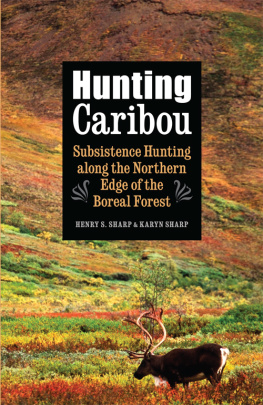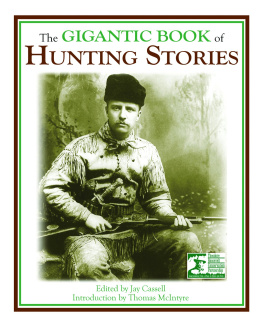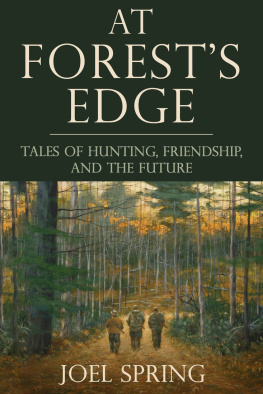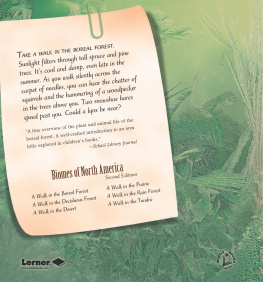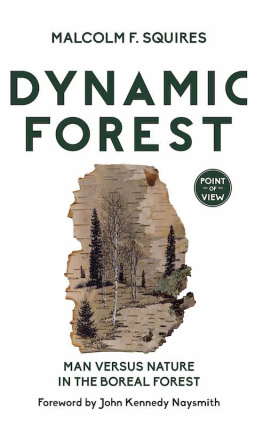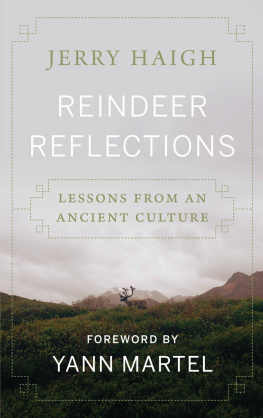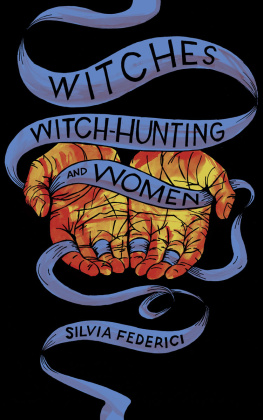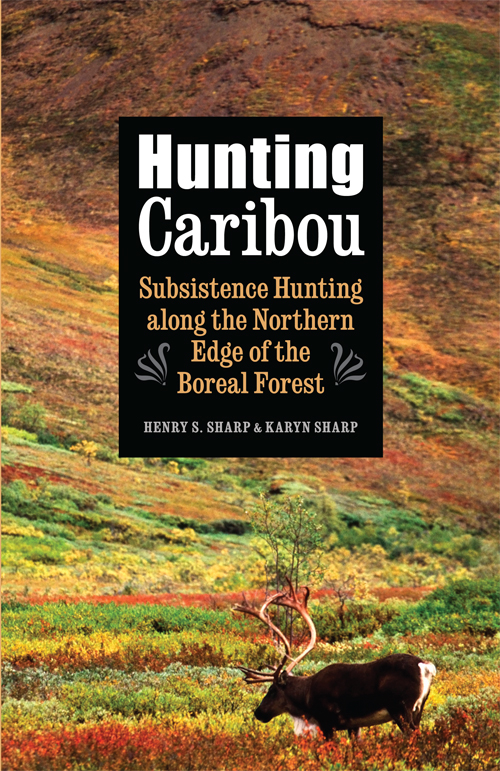
Few books discussing subsistence hunting in history, archaeology, or anthropology are grounded in such rich and deep personal experience and understanding of the subject matter from a practical, participatory, long-term, and hands-on approach. This is mandatory reading for anyone discussing hunting and game management in a historical or anthropological context.
Roland Bohr, author of Gifts from the Thunder Beings: Indigenous Archery and European Firearms in the Northern Plains and Central Subarctic, 16701870
This outstanding book covers a range of critical issues: hunter/gatherer transitions within a colonial context; knowledge and expertise in terms of living with nonhumans; indigenous knowledge; but most intriguing and fundamentally exciting is the blend of voices between father and daughter, elder/younger, anthropologist/archaeologist.... This is a book that I read cover to cover without pausing and imagine that I will not be alone!
Charles R. Menzies, editor of Traditional Ecological Knowledge and Natural Resource Management
Hunting Caribou
Hunting Caribou
Subsistence Hunting along the Northern Edge of the Boreal Forest
Henry S. Sharp & Karyn Sharp
University of Nebraska Press | Lincoln & London
2015 by the Board of Regents of the University of Nebraska
Cover image iStockphoto.com/TT
Photos by the authors
All rights reserved
Library of Congress Cataloging-in-Publication Data
Sharp, Henry S.
Hunting caribou: subsistence hunting along the northern edge of the boreal forest / Henry S. Sharp and Karyn Sharp.
pages cm
Summary: Participant ethnography of the subsistence hunting practices of a band of Densulin in the Northwestern TerritoriesProvided by publisher.
Includes bibliographical references and index.
ISBN 978-0-8032-7446-4 (cloth: alk. paper)
ISBN 978-0-8032-7735-9 (epub)
ISBN 978-0-8032-7736-6 (mobi)
ISBN 978-0-8032-7737-3 (pdf)
1. Chipewyan IndiansHuntingNorthwest Territories. 2. Caribou huntingNorthwest Territories. 3. Subsistence huntingNorthwest Territories. 4. Chipewyan IndiansNorthwest TerritoriesSocial life and customs. 5. Hunting and gathering societiesNorthwest Territories. 6. EthnologyNorthwest Territories. 7. Human ecologyNorthwest Territories. 8. Northwest TerritoriesSocial life and customs. 9. Northwest TerritoriesEnvironmental conditions. I. Sharp, Karyn. II. Title.
E 99. C 59 S 53 2015
304.209719'3dc23
2015002778
The publisher does not have any control over and does not assume any responsibility for author or third-party websites or their content.
For
Caribou, Wolf, and Loon
In Memoriam
Catharine M. Sharp
Alphonse Disain
Boniface Disain
Paul D. Miller
Ernest S. Burch Jr.
Contents
Small Game. Native Mammals. Scale, Guns, and Freedom. Densulin Conceptualization of Hunting. Biology of Women as Hunters. Trust. Hunting Is the Easy Part.
Meat Distribution. In the Village. Food Storage in the Bush: Freezing, Drying, Smoking, Natural Refrigeration. Protecting Dried Meat. Drying Caribou Meat. Marrow and Boiling Bones for Grease.
The Dangers of Moving through the Bush. Walking the Land. Dog Teams. Boats, Opportunistic Contact in Hunting.
Muskets and Rifles. Accuracy. How Weapons Technology Altered Densulin Hunting. Women and Rifles. Social Changes from Changed Hunting Methods. Pursuit Hunting and Following Wounded Game.
The African Model. Consequences of Human Scavenging. An Anthropological Gender War. Eating the Dead. Snow Probes.
Pitching a Camp. Work Areas and Dog Beds. Area a Camp Occupies. Range of Day Trips. Marking the Land. Average Area Exploited by a Camp. Human Influence upon the Land.
Inactivity. Problems with Making and Storing Dry Meat. Fish and Other Things. Choosing a Camp Location. Scars on the Land.
Walking the Land. Storing Meat in Lakes.
The Use of High Ground. The Scale of Distance in Hunting. Time and Distance.
Characteristics of Caribou Hide and Leather. Making and Working Caribou Hide. Time Window for Taking Caribou Hide. Parasites and Seasonality. Uses of Caribou Hide. The Need for Hides Modifies Hunting Priorities. Hunting the Megafauna.
Flexibility in the Sexual Division of Labor. Womens Work and Social Status. Womens Tasks and Shared Work. Raw Materials vs. Finished Products. The Balance of Temperaments.
The Failure of Economic Analysis
Geology, Rock, Ice, and Ground Cover. Permafrost, Drainage, and Ice Action. Change. How Long Is the Memory of Unused Technology? Clothing. The Generational Transmission of Knowledge.
Prey Selection. Hunting with Spears.
How Past Hunters Hunted the Land. Conclusion.
Photos
Maps
Figure
Above all, we wish to thank the people of Mission and Discha for allowing us to live among them and share in the experiences of their lives. For the elder of us, who began this as an adult, those years were ones of trying to understand the operation of a complex and subtle culture seeking to survive in the face of the demanding climactic and environmental conditions of the Subarctic during a period of rapidand profoundchange in physical, economic, and social conditions. Personally it was a time of establishing and sharing relationships; the occasion to try to know and understand many of the most competent, delightful, decent, and complex human beings encountered in the course of a now somewhat lengthy lifetime. For the younger of us, it began as the opportunity to grow up among the Densulin. Experience of the social context in which the hunts recounted in this work occurred was among the circumstances of her childhood. She grew to adulthood with the bush life of the Densulin as part of the very fabric of her own life. This has given to the intellectual curiosity and understanding of her adult life an added dimension that few will ever be able to replicate. The Densulin willingness to share experiences with us has become one of the defining features of our lives and one for which we are eternally grateful.
We have chosen, out of respect and with thanks, to use the real names of the late Abraham Artchie and Ben Adam. We have also used the name of the late Fred Riddle. He has no descendants. There is no longer any reason to disguise his identity. The Subarctic is a harsh and demanding place, and life there is hard on people. Unfortunately, few of the individuals discussed in the text are still among the living. Other than those already mentioned, the names used in the text are pseudonyms. They are consistent with those used in earlier works. We discussed this with the surviving family and, largely to ensure their privacy, it was their preference that we continue this practice.
There are simply too many people at Mission and Discha to whom we owe our thanks and gratitude for us to mention them all. Special thanks, however, go to Joe Bigeye, not only for all the assistance he has given but for the decades of friendship we have shared.
We have used the real names of lakes and locations away from the village that are no longer in active use by the surviving individuals mentioned in the text or by their descendants. This means that because of changes in land usage in the last few years, only Foxholm Lake is disguised. We have continued to use the terms Discha and Mission, again largely for reasons of privacy.
The way animal names are spelled, capitalized, or pluralized may sometimes seem confusing. The topic of this work is quite different from that of

